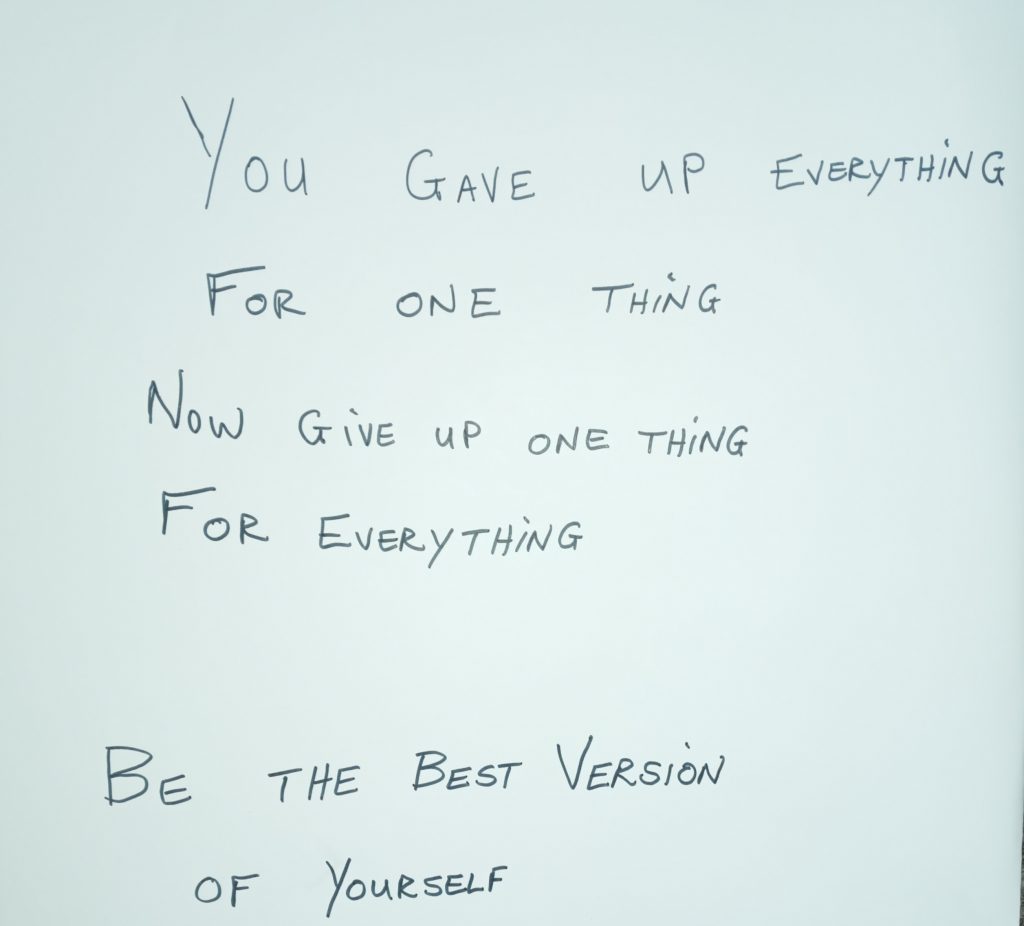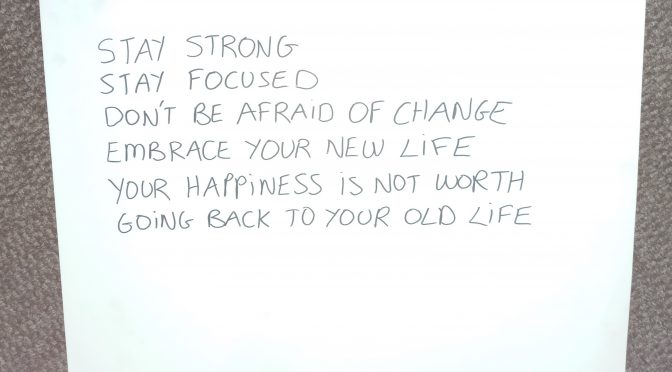SANCA Wedge Gardens treatment centre recently held an ‘adaptability’ workshop for its clients, to help them cope with the ever-changing reality of life.
To adapt to a new situation means to change yourself to it and change your ideas and behaviour to deal with it successfully, says SANCA Wedge Gardens manager Adèl Grobbelaar.
“People resist change because they think they are going to lose something of value and they are going to be unable to adapt to new ways. If it is a significant change to a daily routine it becomes emotional because it threatens safety and security and takes people out of their comfort zone,” she explains.
The ability to adapt to change is a soft life skill and can be learnt, depending a person’s openness to the challenge.
“Sometimes these evaluations or reinventions are done by choice. At other times they’re forced upon you – asking you to become adaptable,” says Adèl.
Some of them may be significant and difficult, such as:
• Getting married
• Having kids
• Starting your own business
• Overhauling your nutritional habits
• Ending a relationship
• Losing a loved one
• Starting college
• Taking a trip around the world
• Moving from one province to another and starting fresh
At other times, changes may feel small and insignificant. “Either way, people’s ability to adapt to these situations and become comfortable with the ever-changing circumstances in their life will influence their happiness, health, stress and well-being,” says Adèl.
Why is adaptability so important?
In a world that is constantly evolving, people’s ability to adapt can increase their chance of being successful in their career, relationships, health and more.
Adaptability showcases their ability to be resourceful, display leadership skills, display analytical skills, be determination and so much more.
“In life, we will always experience unpleasant and uncomfortable things. Some of these things are within our control. While others are not,” says Adèl.
Some ways how to adapt include:
• Trying to find the humour in a situation.
• Talking about the problems around it, not the feelings.
• Don’t stress about stressing about it.
• Focus on values instead of fears.
• Accept the past and fight for the future.
• Don’t expect stability.
• Let go of ‘that’s the way it was always done’.
• Force yourself to take some risks.
• Encourage others to be open minded.
• Embrace learning.
• Initially brainstorm and then organise your thoughts.
• Stay positive and get a fresh perspective.
• Focus on what you are able to do.
• Set new goals.
• Stay connected to people.
After attending the workshop, SANCA Wedge Gardens asked its clients to write a motivational letter to others who are battling substance addiction. This is what they had to say:

“Don’t let your past influence your future.”
“Everything you want is on the other side of fear.”
“Your whole life can and will change.”
“You gave up everything for one thing. Now give up one thing for everything!”
“Be the best version of yourself.”
“Be who you are. Change your situation by changing the world. Recover and live a life of blessings.”
“What I survived might kill you!”
“Stay strong. Stay focussed. Don’t be afraid of change. Embrace your new life. Losing your happiness is not worth going back to your old life.”
“Embrace the change. It’s easier than trying to resist.”
“It’s possible. It takes dedication. Know yourself and love yourself.”
“Stay strong. Have heart. Be free!”
For more information about SANCA Wedge Gardens, visit www.wedgegardens.co.za
